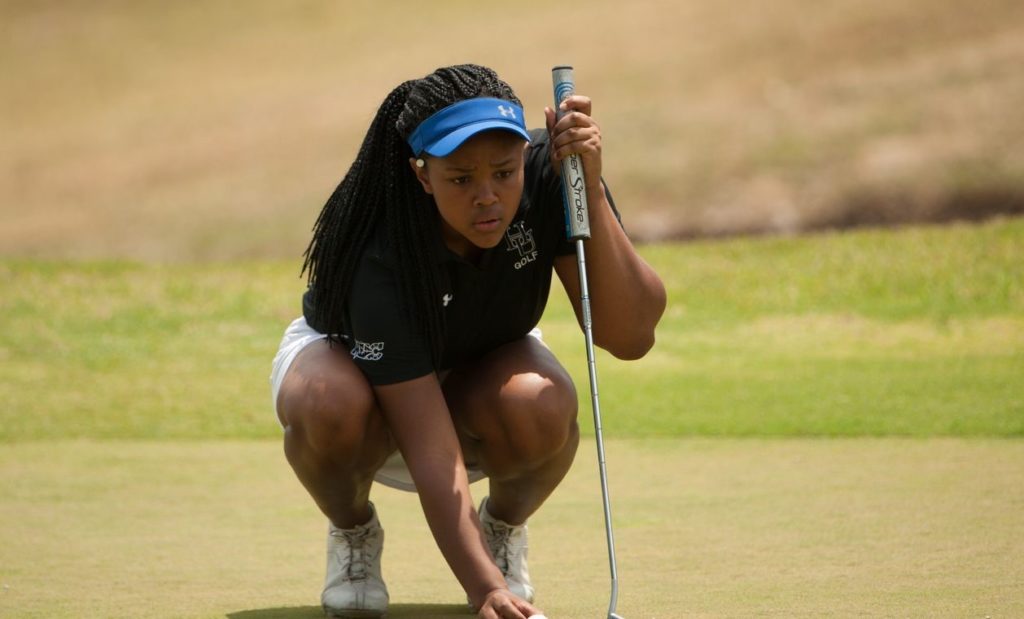
This time of year, many college students are preparing to head to their school and prepare for the upcoming school year. But this year looks different, especially for many student-athletes like Jakari Harris. Due to the financial impact of COVID-19, some universities have made the difficult decision to cut programs from the athletic department. This can be devastating for students who are also losing their scholarships, which means they are now paying for their education.
First Tee – Metro Atlanta alum, Jakari Harris, is doing something about it. A graduate of Hampton University and a former member of the golf team, Jakari was disheartened to learn that the golf team’s funding had been cut upon her graduation. She and a few other teammates have since started a
funding effort to help those who are affected.
“Because of First Tee, I was able to play collegiate golf and would like that opportunity to be available to athletes at Hampton again.”
Jakari’s act of service is directly rooted in the values she learned while a participant at First Tee – Metro Atlanta. We asked her a few questions about her experience, and this is what she had to say.
After being exposed to the game of golf at a young age, my dad started looking for golf programs around our neighborhood. The first chapter I joined was First Tee – Atlanta, but I switched to First Tee – East Lake once I transferred to Charles R. Drew Charter School. The home course was right across from the school, so I could just walk over after classes and practice almost every day.
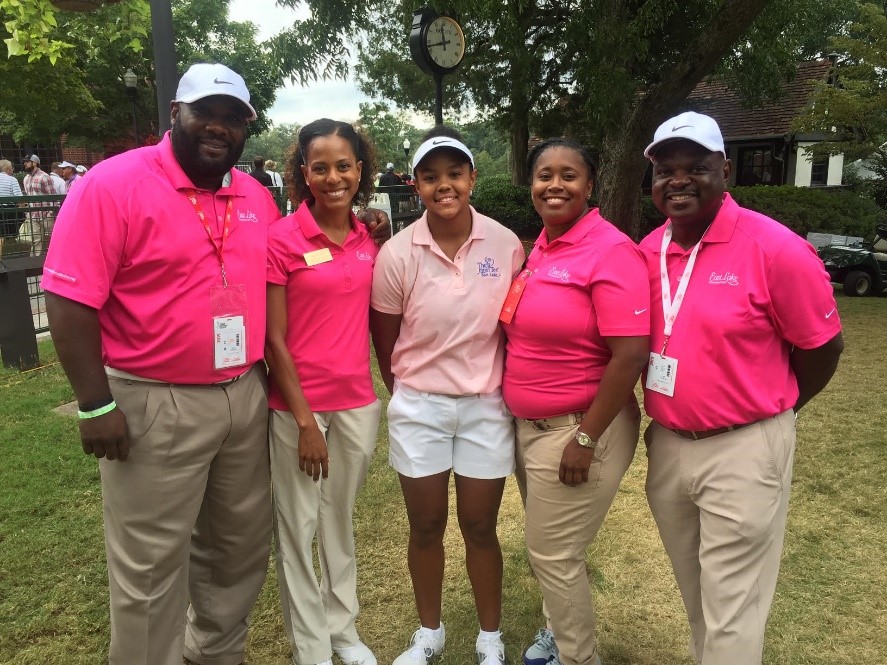
First Tee emphasizes the fact that participants not only learn golf skills, but also life skills. A lot of the values I hold near and dear to my heart are the very values that were taught in First Tee classes. My personal favorites were integrity and perseverance. Aside from life skills I learned, I also gained a family with First Tee. All of the coaches at my home chapter were extremely supportive to me on and off the course. They went above and beyond, and I consider many of them as my mentors.
First Tee camps always presented me with both new experiences and challenges. I soaked in all the instruction I could from every drill and practice session. Whenever I faced a challenge, I referred back to what I was taught earlier and tried to apply it. When I wasn’t successful, I could always ask one of the coaches for help. This is the same way I take on the new experiences and challenges in life. I take the experience for what it is and try to learn as much as I can. Then, I look at the challenges from every angle possible. Because of First Tee, I have no problem asking for help and learning from my mistakes.
One of my First Tee mentors is Coach Brittny Lott, and I actually still keep in contact with her regularly. She actually does my hair from time to time. Her love for the Lord pushes me to develop a better relationship with God. She was very patient and encouraging when I first met her. Because of my competitiveness, I would sometimes be too hard on myself when I didn’t perform well during competition. She would give me encouraging words and talk me down.
I called her after one of my tournaments in college when I shot a terrible score. I just kept saying “I don’t know why I keep doing this. I know I can do better than this.” She brought up a very good point that will always be in the back of my mind. Things happen in golf that you can’t control. Even professionals have their off days. Instead of reacting to what I scored on the last hole, I can choose to not give up and do my very best from then on. If you can walk away knowing you did your best, that’s all you can ask for.
“My biggest takeaway from First Tee is that family doesn’t have to be blood.”
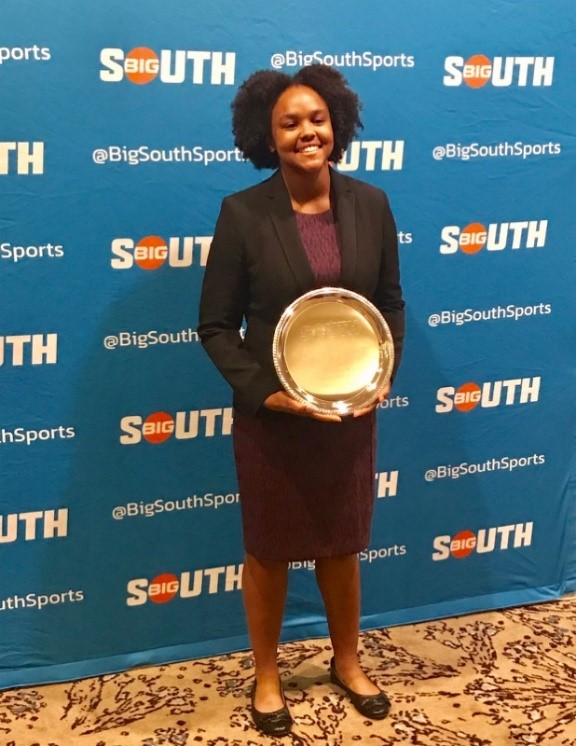
First Tee coaches have had one of the biggest impacts on my life. They care about each and every participant. Even when I would go to a First Tee camp where I didn’t know anyone, the coaches made me feel so welcome and at home. The relationships I have formed through this organization are priceless.
Looking forward, I eventually want to become a professor at a Historically Black College and University (HBCU). After graduating in STEM from an HBCU, I know that there are very good students there who just need better resources. I was able to end up where I am because of resources I came across and relationships I developed. I am now in the Biomedical Engineering PhD program at Georgia Tech and Emory University.
First Tee taught me how to network and keep in contact with the people you meet. Sometimes it’s more about
WHO you know than
WHAT you know. The core values I learned will help me through grad school and beyond.
If you wish to help support Jakari and her fellow Hampton Golf Alumni in their efforts to off-set the lost scholarships and bring the golf program back, visit their
GoFundMe page.
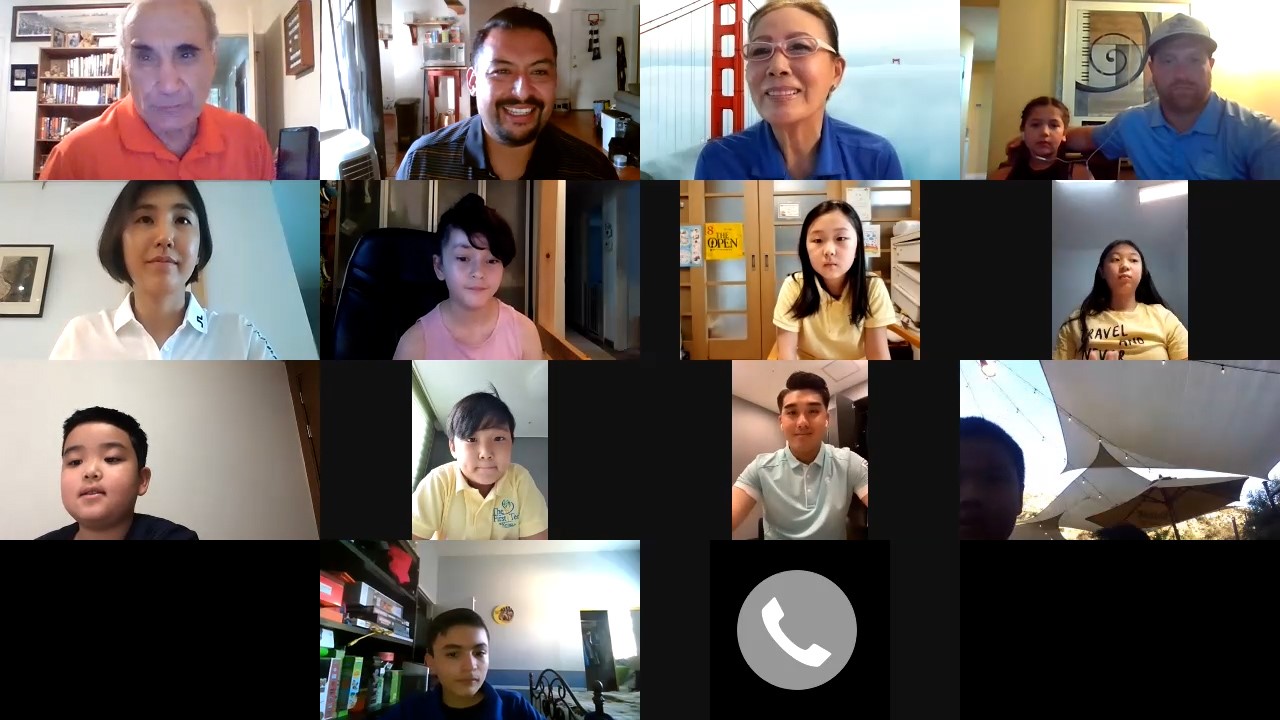 Like our participants, what makes our chapters so special is that each one is unique in its own way. We celebrate their diverse perspectives because it makes our work even more powerful. Yet one thing that remains consistent at every chapter is their passion for supporting the next generation and the communities they live in.
One way our chapters are doing this is by creating a space that makes every individual feel like they belong. A culture of acceptance is deeply rooted in our values as an organization as we seek to understand walks of life that are different from our own.
Two of our chapters, First Tee — Greater Pasadena and First Tee — Korea, have brought this to life in a meaningful new way. In 2019, the two chapters became official sister chapters in an effort for participants to share cultural experiences and explore opportunities beyond their community.
Like our participants, what makes our chapters so special is that each one is unique in its own way. We celebrate their diverse perspectives because it makes our work even more powerful. Yet one thing that remains consistent at every chapter is their passion for supporting the next generation and the communities they live in.
One way our chapters are doing this is by creating a space that makes every individual feel like they belong. A culture of acceptance is deeply rooted in our values as an organization as we seek to understand walks of life that are different from our own.
Two of our chapters, First Tee — Greater Pasadena and First Tee — Korea, have brought this to life in a meaningful new way. In 2019, the two chapters became official sister chapters in an effort for participants to share cultural experiences and explore opportunities beyond their community.
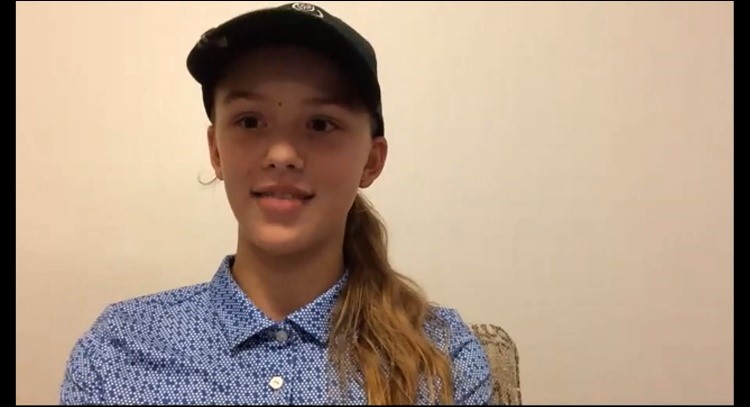 Recently, participants and coaches from the two chapters were able to meet virtually to discuss a trending topic in communities across the globe: returning to school during a pandemic.
During the video call, participants shared how they’re feeling and handling the return to school.
Gloria from First Tee — Korea shared, “I think I should take responsibility for myself because if I don’t follow the rules, I could put my friends and family at risk.”
Through the meeting, the participants realized that they have quite a bit in common despite growing up thousands of miles apart. They’re all adjusting to the “new normal,” and are leaning on the character strengths they’ve developed through First Tee to help conquer these challenges.
Recently, participants and coaches from the two chapters were able to meet virtually to discuss a trending topic in communities across the globe: returning to school during a pandemic.
During the video call, participants shared how they’re feeling and handling the return to school.
Gloria from First Tee — Korea shared, “I think I should take responsibility for myself because if I don’t follow the rules, I could put my friends and family at risk.”
Through the meeting, the participants realized that they have quite a bit in common despite growing up thousands of miles apart. They’re all adjusting to the “new normal,” and are leaning on the character strengths they’ve developed through First Tee to help conquer these challenges.
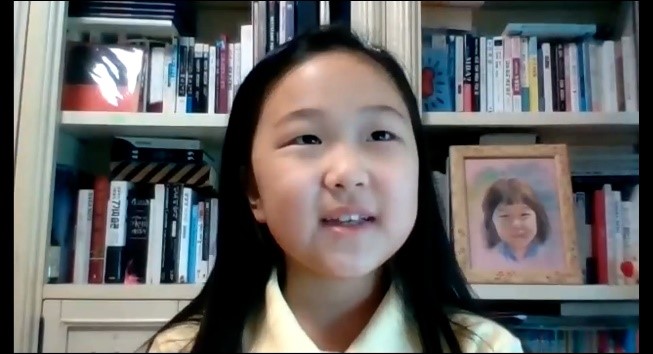 Bob Baderian, Executive Director for First Tee — Greater Pasadena, summed up the experience:
“This very positive partnership between First Tee — Greater Pasadena and First Tee — Korea encourages participants to share their experiences and perspectives and provides opportunities to educate them about the culture and history of their respective countries and communities. These meetings have resulted in increased knowledge and appreciation of cultures and lifestyles between our two chapters.”
Founded in 2006, First Tee — Greater Pasadena has served more than 200,000 kids and teens. First Tee — Korea was founded in conjunction with the 2015 Presidents Cup and is one of six international chapters within the First Tee network.
The sister chapters have a goal to one day provide an in-person experience for their participants to meet.
This pandemic, among other challenges this year, has been more than we could have ever anticipated. It’s stories like these, of coming together to learn, appreciate, and build relationships, that inspire us as we work to empower youth to be game-changers and make this a better world.
Bob Baderian, Executive Director for First Tee — Greater Pasadena, summed up the experience:
“This very positive partnership between First Tee — Greater Pasadena and First Tee — Korea encourages participants to share their experiences and perspectives and provides opportunities to educate them about the culture and history of their respective countries and communities. These meetings have resulted in increased knowledge and appreciation of cultures and lifestyles between our two chapters.”
Founded in 2006, First Tee — Greater Pasadena has served more than 200,000 kids and teens. First Tee — Korea was founded in conjunction with the 2015 Presidents Cup and is one of six international chapters within the First Tee network.
The sister chapters have a goal to one day provide an in-person experience for their participants to meet.
This pandemic, among other challenges this year, has been more than we could have ever anticipated. It’s stories like these, of coming together to learn, appreciate, and build relationships, that inspire us as we work to empower youth to be game-changers and make this a better world.
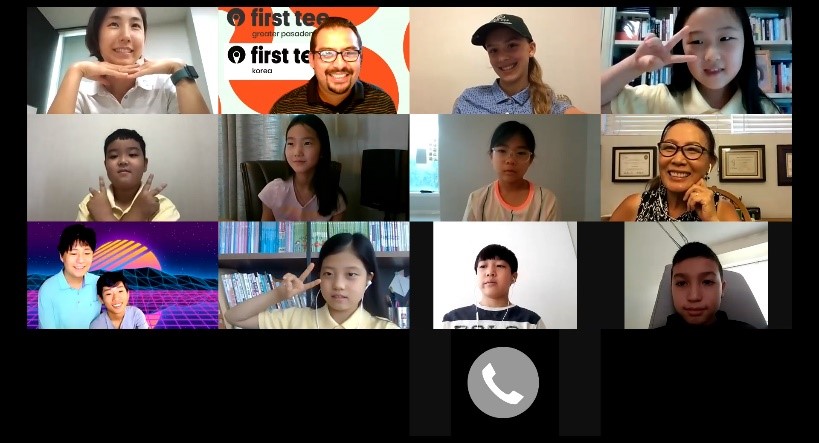
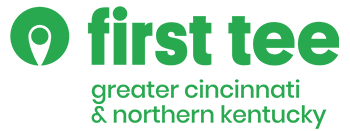
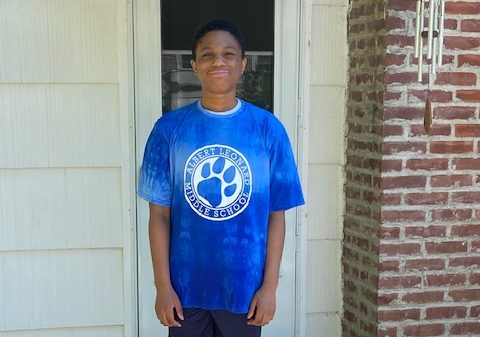
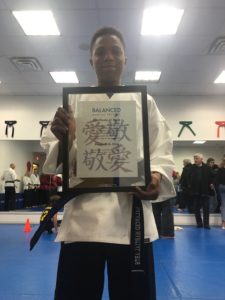 First Tee — Metropolitan New York is one of 51 First Tee chapters to receive a grant from the USGA towards their ongoing commitment to making the game more accessible and welcoming for juniors. In addition to the $200,000 that went to chapter grants, the association pledged $125,000 to help First Tee headquarters develop innovative digital tools that enable stronger connections between juniors, parents, chapters and coaches, bringing the USGA’s total investment to $325,000 for 2020.
“Year after year we are seeing the positive impact that First Tee and other junior programs are having in breaking down barriers and connecting communities through sports,” said Mike Davis, CEO of the USGA. “It is vital for golf’s long-term health that we continue to create pathways for all juniors to participate.”
First Tee brings kids and teens to the game of golf and leverages it as a catalyst for personal growth through experiences that build inner strength, self-confidence, and resilience. Through chapters in 150 communities and more than 10,000 schools and 1,200 after-school partnerships, First Tee reaches kids ages 5-18 from all backgrounds.
First Tee — Metropolitan New York is one of 51 First Tee chapters to receive a grant from the USGA towards their ongoing commitment to making the game more accessible and welcoming for juniors. In addition to the $200,000 that went to chapter grants, the association pledged $125,000 to help First Tee headquarters develop innovative digital tools that enable stronger connections between juniors, parents, chapters and coaches, bringing the USGA’s total investment to $325,000 for 2020.
“Year after year we are seeing the positive impact that First Tee and other junior programs are having in breaking down barriers and connecting communities through sports,” said Mike Davis, CEO of the USGA. “It is vital for golf’s long-term health that we continue to create pathways for all juniors to participate.”
First Tee brings kids and teens to the game of golf and leverages it as a catalyst for personal growth through experiences that build inner strength, self-confidence, and resilience. Through chapters in 150 communities and more than 10,000 schools and 1,200 after-school partnerships, First Tee reaches kids ages 5-18 from all backgrounds.

 This time of year, many college students are preparing to head to their school and prepare for the upcoming school year. But this year looks different, especially for many student-athletes like Jakari Harris. Due to the financial impact of COVID-19, some universities have made the difficult decision to cut programs from the athletic department. This can be devastating for students who are also losing their scholarships, which means they are now paying for their education.
First Tee – Metro Atlanta alum, Jakari Harris, is doing something about it. A graduate of Hampton University and a former member of the golf team, Jakari was disheartened to learn that the golf team’s funding had been cut upon her graduation. She and a few other teammates have since started a
This time of year, many college students are preparing to head to their school and prepare for the upcoming school year. But this year looks different, especially for many student-athletes like Jakari Harris. Due to the financial impact of COVID-19, some universities have made the difficult decision to cut programs from the athletic department. This can be devastating for students who are also losing their scholarships, which means they are now paying for their education.
First Tee – Metro Atlanta alum, Jakari Harris, is doing something about it. A graduate of Hampton University and a former member of the golf team, Jakari was disheartened to learn that the golf team’s funding had been cut upon her graduation. She and a few other teammates have since started a  First Tee emphasizes the fact that participants not only learn golf skills, but also life skills. A lot of the values I hold near and dear to my heart are the very values that were taught in First Tee classes. My personal favorites were integrity and perseverance. Aside from life skills I learned, I also gained a family with First Tee. All of the coaches at my home chapter were extremely supportive to me on and off the course. They went above and beyond, and I consider many of them as my mentors.
First Tee camps always presented me with both new experiences and challenges. I soaked in all the instruction I could from every drill and practice session. Whenever I faced a challenge, I referred back to what I was taught earlier and tried to apply it. When I wasn’t successful, I could always ask one of the coaches for help. This is the same way I take on the new experiences and challenges in life. I take the experience for what it is and try to learn as much as I can. Then, I look at the challenges from every angle possible. Because of First Tee, I have no problem asking for help and learning from my mistakes.
One of my First Tee mentors is Coach Brittny Lott, and I actually still keep in contact with her regularly. She actually does my hair from time to time. Her love for the Lord pushes me to develop a better relationship with God. She was very patient and encouraging when I first met her. Because of my competitiveness, I would sometimes be too hard on myself when I didn’t perform well during competition. She would give me encouraging words and talk me down.
I called her after one of my tournaments in college when I shot a terrible score. I just kept saying “I don’t know why I keep doing this. I know I can do better than this.” She brought up a very good point that will always be in the back of my mind. Things happen in golf that you can’t control. Even professionals have their off days. Instead of reacting to what I scored on the last hole, I can choose to not give up and do my very best from then on. If you can walk away knowing you did your best, that’s all you can ask for.
First Tee emphasizes the fact that participants not only learn golf skills, but also life skills. A lot of the values I hold near and dear to my heart are the very values that were taught in First Tee classes. My personal favorites were integrity and perseverance. Aside from life skills I learned, I also gained a family with First Tee. All of the coaches at my home chapter were extremely supportive to me on and off the course. They went above and beyond, and I consider many of them as my mentors.
First Tee camps always presented me with both new experiences and challenges. I soaked in all the instruction I could from every drill and practice session. Whenever I faced a challenge, I referred back to what I was taught earlier and tried to apply it. When I wasn’t successful, I could always ask one of the coaches for help. This is the same way I take on the new experiences and challenges in life. I take the experience for what it is and try to learn as much as I can. Then, I look at the challenges from every angle possible. Because of First Tee, I have no problem asking for help and learning from my mistakes.
One of my First Tee mentors is Coach Brittny Lott, and I actually still keep in contact with her regularly. She actually does my hair from time to time. Her love for the Lord pushes me to develop a better relationship with God. She was very patient and encouraging when I first met her. Because of my competitiveness, I would sometimes be too hard on myself when I didn’t perform well during competition. She would give me encouraging words and talk me down.
I called her after one of my tournaments in college when I shot a terrible score. I just kept saying “I don’t know why I keep doing this. I know I can do better than this.” She brought up a very good point that will always be in the back of my mind. Things happen in golf that you can’t control. Even professionals have their off days. Instead of reacting to what I scored on the last hole, I can choose to not give up and do my very best from then on. If you can walk away knowing you did your best, that’s all you can ask for.
 First Tee coaches have had one of the biggest impacts on my life. They care about each and every participant. Even when I would go to a First Tee camp where I didn’t know anyone, the coaches made me feel so welcome and at home. The relationships I have formed through this organization are priceless.
Looking forward, I eventually want to become a professor at a Historically Black College and University (HBCU). After graduating in STEM from an HBCU, I know that there are very good students there who just need better resources. I was able to end up where I am because of resources I came across and relationships I developed. I am now in the Biomedical Engineering PhD program at Georgia Tech and Emory University.
First Tee taught me how to network and keep in contact with the people you meet. Sometimes it’s more about WHO you know than WHAT you know. The core values I learned will help me through grad school and beyond.
If you wish to help support Jakari and her fellow Hampton Golf Alumni in their efforts to off-set the lost scholarships and bring the golf program back, visit their
First Tee coaches have had one of the biggest impacts on my life. They care about each and every participant. Even when I would go to a First Tee camp where I didn’t know anyone, the coaches made me feel so welcome and at home. The relationships I have formed through this organization are priceless.
Looking forward, I eventually want to become a professor at a Historically Black College and University (HBCU). After graduating in STEM from an HBCU, I know that there are very good students there who just need better resources. I was able to end up where I am because of resources I came across and relationships I developed. I am now in the Biomedical Engineering PhD program at Georgia Tech and Emory University.
First Tee taught me how to network and keep in contact with the people you meet. Sometimes it’s more about WHO you know than WHAT you know. The core values I learned will help me through grad school and beyond.
If you wish to help support Jakari and her fellow Hampton Golf Alumni in their efforts to off-set the lost scholarships and bring the golf program back, visit their